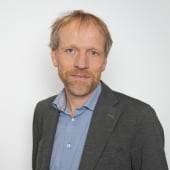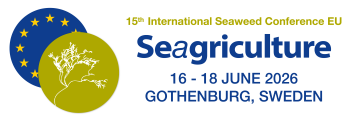About the speaker:
Dr Sander van den Burg is senior researcher Blue Economy at Wageningen Social & Economic Research (WEcR). Sander studied Environmental Sciences and obtained a PhD at the Environmental Policy Group, Wageningen University. After working on sustainable buildings and sustainable area developments for some years, he started work at Wageningen Economic Research in 2011. Since 2011, Sander has worked as project leader and program manager in marine research projects, studying how the sustainable use of seas and oceans can contribute to the achievement of SDG 2 and SDG 4. Examples of such projects are SEAMARK (Horizon Europe), AlgaePROBANOS (Horizon Europe), Genialg (H2020), MARIBE (H2020-CSA) and projects commissioned by CINEA/DG MARE. In his projects various methods are applied, including but not restricted to Cost Benefit Analysis, Value Chain Analysis, Impact Assessment, Life Cycle Assessment, Multi-criteria Analysis and participatory design. These projects are carried out for various clients, ranging from national government and the European Commission to private enterprise and charity funds. Sander is an experienced senior researcher, used to working in multi-disciplinary teams. He regularly published his work in scientific and non-scientific journals.
Company info:

Wageningen Social & Economic Research provides the insights and strategies needed to transform global agrifood systems. They empower policymakers and decision-makers in agrifood to drive transitions toward a fair and just food system for a healthier, more equitable future.
Presentation:
In the European seaweed sector, many projects and companies aim to develop high-value, low-volume products. This pushes actors to explore new markets and new value chains. The power dynamics within a value chain are dependent on the type of value chain governance, as described in Gereffi’s (2005) typology of value chain governance. Seaweed farmers, typically positioned as suppliers, often hold limited influence in the value chain, particularly when their capabilities are low and product characteristics are not easily codified. In such cases, they remain dependent on buyers, with little power over pricing. However, collaboration among producers offers a path to greater resilience and influence. By working together—through informal networks, joint projects, cooperatives, or formal sector organisations—farmers can strengthen their capacities, share knowledge, and collectively develop product standards. This not only improves their position within the value chain but also enhances their ability to withstand external shocks, such as poor harvests, and to capture more value from the growing seaweed market.



